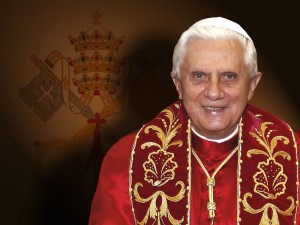Why Ordinary Form Parishes Need Traditionalists
 In your last letter, you told a compelling and heartbreaking story detailing how your rights as a traditionalist Catholic were curtailed. Not only are the prelates who persecuted you wrong, but as shepherds of the flock, they made a foolish decision to stamp you out in an age when faithful Catholic communities like yours are hard to come by. What makes Catholicism so “catholic” is its ability to have multiple ways of worship under the same tent. And as I’ve said before and will continue to say, traditionalist Catholics, including those in the Indult ghetto, set a good example through their reverence and love for the Church.
In your last letter, you told a compelling and heartbreaking story detailing how your rights as a traditionalist Catholic were curtailed. Not only are the prelates who persecuted you wrong, but as shepherds of the flock, they made a foolish decision to stamp you out in an age when faithful Catholic communities like yours are hard to come by. What makes Catholicism so “catholic” is its ability to have multiple ways of worship under the same tent. And as I’ve said before and will continue to say, traditionalist Catholics, including those in the Indult ghetto, set a good example through their reverence and love for the Church.
It seems accurate to say most traditionalist Catholics simply don’t experience God and the Sacraments at their local parish’s Ordinary Form in the same way they do at the Extraordinary Form. I think this preference actually has less to do with the Ordinary Form than one might think. Much of traditionalists’ discontent may be attributed to the fact that the state of the liturgy in America is so often appalling. Most traditionalists didn’t start out their liturgical lives as traditionalists. Liturgical reform would be less controversial in the United States if parishes offered more reverent Masses in the Ordinary Form. But in the U.S., where traditional Christianity has collapsed, demand for a proper and reverent liturgy is minimal.
You mentioned in an earlier letter that as a traditionalist, you don’t have an “end game”. As a non-traditionalist who appreciates the need for better liturgies, I do have an end goal in mind: I hope to lure traditionalists not only from their Indult Ghetto into mainstream diocesan parishes, but into the Masses I attend. There’s a lot of Catholic talent in the traditionalist community that would be helpful in the effort to improve the liturgy of the Ordinary Form at mainstream parishes. We need more traditionally-minded Catholics attending the Ordinary Form, not simply attending the Extraordinary Form at 7:00AM while the rest of us attend go at 10:00AM. While I strongly oppose much of the tone and content of Michael Voris, Fr. Zuhlsdorf, and their followers, the knowledge and sensibilities they’d bring to a parish is something I can get behind.
You ended your last letter with a pertinent question: “So if you want [the Indult ghetto] to end, I will only ask you: what can you do to end it?” Well, I have some ideas. To start, Catholics must act on Pope Francis’ frequent warnings on the terrorism of gossip. As we know, gossip can destroy families, relationships with friends, and communities very easily. Gossip is also dangerous in a broader, Church-related sense. When we villainize or speak mockingly about Catholics of different backgrounds, we divide the Church and create our own ghettos. Gossip is a sin we must all work to rid ourselves from. Speaking well of traditionalist Catholics, and making an effort to understand where they are coming from, is an important step to healing the divide. Your work to root out the phrase “radtrad” should be modeled by us non-traditionalists.
Of course, avoiding the sin of gossip certainly doesn’t require us to withhold our fair critiques or serious opinions. You’re probably familiar with Pope Francis’ quote about Catholics who love the Extraordinary Mass; “It is just necessary to show some patience and kindness to people who are addicted to a certain fashion”. While this remark no doubt offended many traditionalists, that doesn’t mean it’s wrong, and it doesn’t constitute gossip. People can disagree with his statement all they want, but it’s an opinion he is entitled to, and it’s probably based on his personal experience. Similarly, fair criticism of the pope on substance or style are fair game, and conservative or traditionalist Catholics don’t deserve a laborious physiological analysis for doing so.
Solving the Indult ghetto can’t just be an external effort, of course. If a majority of traditionalists are hoping that the Ordinary Form is put “on the ash heap of ecclesial history”, as one commentator predicts, the ghetto will live on. I acknowledge the mistakes that were made in implementing Vatican II, and admit some changes should not have taken place. However, at this point in its history, there’s no doubt that the Church is being called to be more missionary and to reach out to the people of this age. While contested, the vernacular in the liturgy is absolutely necessary, and we cannot turn away from it.
It was wrong, and always will be wrong, to force traditionalists to attend the Ordinary Form. I want it to be available to them, and as an infrequent attendee of it, I want it available for myself as well. But my hope is that the Extraordinary Form becomes less of a necessity as the use of the Ordinary Form improves. I am sympathetic to traditionalists, but I am also an unabashed supporter of Vatican II and liturgical reform. I think more Catholics would be as well if more Ordinary Form parishes benefited from the knowledge and reverence of traditionalists.

